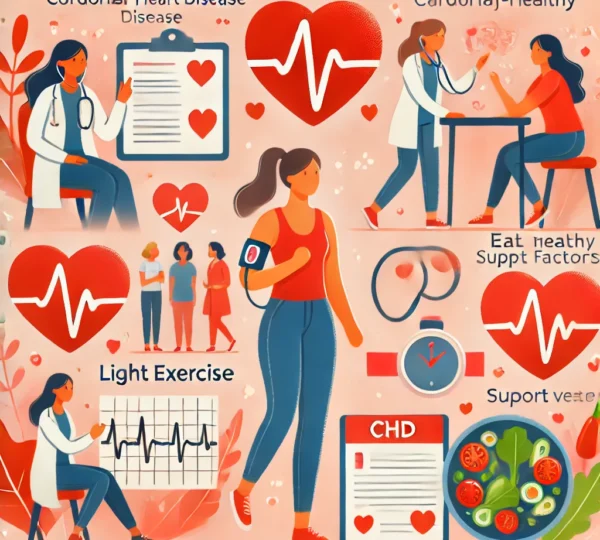Coronary Heart Disease in Women: Unique Risks and Considerations
Coronary Heart Disease (CHD) in Women: Recognizing Risks, Symptoms, and Prevention
Coronary heart disease (CHD) is often seen as a “man’s disease.” However, heart disease is also a leading cause of death in women globally. Unique risks and symptoms affect women when it comes to CHD. Let’s explore signs of heart disease in women, key risk factors, and steps for better heart health.
1. Recognizing Symptoms: How Women’s Signs May Differ
While chest pain is a common CHD symptom for both men and women, women may experience subtler signs. These include:
- Shortness of breath
- Fatigue
- Nausea
- Jaw pain
These specific signs are essential for women to recognize. Awareness can lead to earlier CHD diagnosis and faster treatment.
2. Risk Factors Unique to Women
Women have unique risk factors for coronary heart disease. Key factors include:
- Hormonal changes: Menopause increases heart disease risks.
- Pregnancy complications: Conditions like preeclampsia affect long-term heart health.
- PCOS: This condition raises heart disease risk for women.
For women, other conditions—such as diabetes, high blood pressure, and obesity—can also increase CHD risks more than they might in men.
3. Underdiagnosis and Undertreatment: A Common Concern
CHD in women is often underdiagnosed and undertreated, partly due to misconceptions. Heart disease is sometimes seen as primarily affecting men, so healthcare providers may overlook or misinterpret women’s symptoms. This can delay diagnosis and treatment, putting women at risk. Understanding this bias is essential for women to advocate for their heart health.
4. Preventing CHD: Steps Women Can Take
Women can reduce CHD risks by adopting heart-healthy habits:
- Eat a balanced diet.
- Exercise regularly.
- Quit smoking.
- Manage stress.
Raising awareness about heart disease in women empowers women to prioritize their health and seek help when needed.
5. Support and Resources for Women
For women with CHD, support groups and resources can be valuable. These communities provide shared experiences and support for pregnancy complications, heart health challenges, and beyond. Connecting with others can help women take control of their heart health and live fuller lives.
Conclusion
Coronary heart disease poses significant risks for both men and women, but there are unique considerations for women. Addressing these risk factors, promoting early diagnosis, and advocating for personalized treatment are all steps toward better heart health for women.



